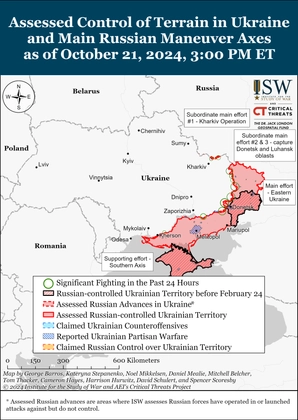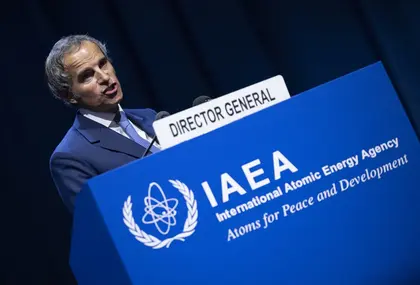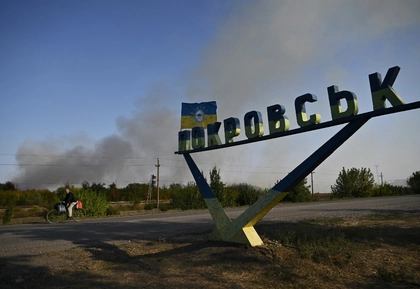Rumors have been doing the rounds lately that the Russian troops occupying the Zaporizhzhia Nuclear Power Plant (ZNPP) might leave and hand over control to the International Atomic Energy Agency(IAEA).
It is notable that these rumors are now spreading not only in the Ukrainian information space, studded with cocksure forecasts of the Russian army's inevitable – if not imminent – defeat, but also in Russian media outlets.
JOIN US ON TELEGRAM
Follow our coverage of the war on the @Kyivpost_official.
The latter have even suggested how the Kremlin would sell it to the domestic audience: control over the ZNPP would be handed over to the IAEA (and not to "Ukrainian fascists"!) under guarantees of stable transit of Russian oil and natural gas through Ukrainian territory.
They don’t bother mentioning the possibility of handing control over to Kyiv. Their immediate task is to explain why Moscow should take this step.
As paradoxical as it may seem Ukraine is, as no-one else, interested in the continued transit of Russian natural gas through its territory.
As long as it flows into the Ukrainian pipeline, the domestic gas market can be kept afloat, especially taking into consideration the current problems encountered in Ukraine's energy sector caused by Russian strikes and the record-high prices on commodity markets.
If the gas transit were to stop, Ukraine would need additional supplies from other sources and would have to pay through the nose from its shrunk treasury. Besides, it would be technically difficult to switch the Ukrainian gas transmission system from east-to-west mode to west-to-east mode in order to pump the natural gas stored in the west of the country and imported from EU countries.

ISW Russian Offensive Campaign Assessment, October, 22, 2024
In principle, the switch is possible, based on the experience of gas wars with Russia when Moscow halted transit via the pipeline and Kyiv switched to the reverse mode, buying natural gas from its Western neighbors. However, recurrent Russian strikes on Ukraine's energy infrastructure obviously make this option an insecure one.
The transit of Russian oil via Ukrainian territory is ensured by agreements signed between Kyiv and Brussels, which have enabled the oil embargo against Russia (albeit incomplete since Putin's dependent friend Viktor Orbán wrangled an exception for the Hungarian oil pipeline).
Russia's state budget finds itself in the red now. Up until the EU embargo on Russian oil took effect on Dec. 5, oil exports were its principal source of revenue, so Kyiv is definitely not interested in lifting the embargo.
It is not yet possible to calculate exactly how much revenue Russia's budget will fall short by due to the oil embargo, but it is absolutely clear that it will, and that means reduced war capabilities.
Therefore, Ukraine is hardly likely to take any risks.
It is obvious that if Russian troops did pull out of the ZNPP, the reason would be anything but guarantees of transit. But the Kremlin would still have to come up with excuses to domestic consumers for yet another failure.
So, what could be the reason then? It is the threat of sanctions against Rosatom, Russia's state atomic energy corporation. Rosatom is not on the sanctions list yet, and is still able to do business with Hungary and Turkey.
This keeps Moscow on the other end of the West's lever of pressure, although Kyiv has protested against leaving this important economic player intact.
But in this case, it is in Ukraine's interest, because the ZNPP, as the major component of the national energy system, is far more important for Ukraine's economy than Rosatom is for Russia's.
Taking into consideration the special economic importance of Rosatom, the logic is very similar to that of the grain export deal or of the possible launch of Russian ammonia transit via Ukraine.
The transfer of control over the ZNPP would certainly benefit Ukraine a lot more than Russia. Under the circumstances of the current war of attrition, it would be a very rational step.
Of course, Russia cannot acknowledge giving in to pressure. That is why it is setting out demands regarding oil and gas transit guarantees – just another lame move to save Putin's face.
There is no official confirmation of a ZNPP-IAEA agreement, but once sealed, it would bury Putin's strategy for plunging Ukraine into dark and cold.
This country does need the ZNPP, which accounts for 50 percent of its total nuclear power generating capacity and 25 percent of its total power output. Under Putin's threats to plunge the country into dark and cold, the ZNPP could be a big trump card.
Besides, the very fact of ceding Russian control of the plant would expose the failure of Putin's attempts to coerce Ukrainians into peace on his terms by destroying their critical infrastructure.
And more importantly, it would mean that he’s owning up to his own failure.
One could say that Putin is inconsistent. He certainly is, and there is nothing strange or new about this.
Putin is a great strategist, but only in the eyes and minds of his humble subjects.
In fact, he has lost in Ukraine and he knows it. He is breaking his back to save his face.
By targeting Ukraine's critical infrastructure, he still hopes to force its leadership to negotiate but, by all accounts, this part of his harebrained scheme is also doomed to fail.
The views expressed in this article are the author’s and not necessarily those of Kyiv Post
You can also highlight the text and press Ctrl + Enter






